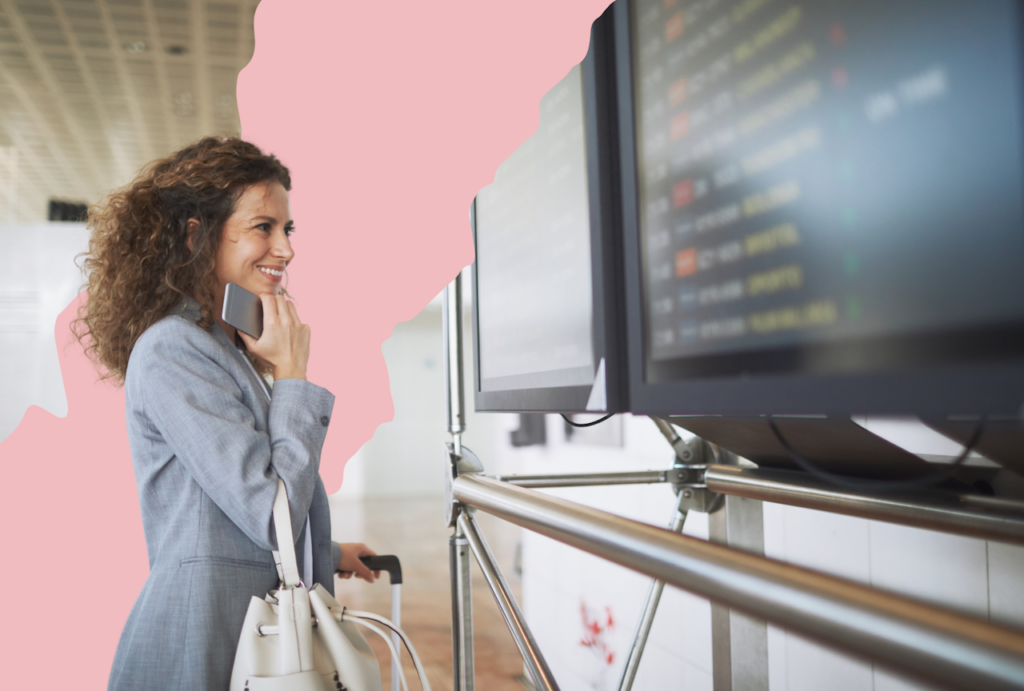Ideal for smarter, safer business travel in the new normal.
There’s no doubt that we’re all feeling a little bereft of holidays right now. But spare a thought for the business travel sector – no, really – who have been hit by a double whammy of financial stresses. Firstly, the grounding of flights, and secondly, a global transition to ‘working from home’ which sees no end in sight.
In fact, earlier this year it was reported that the business travel sector has lost an estimated $710bn in revenue during the pandemic. According to the Financial Times, business travel can generate as much as 75% of an airline’s revenue, meaning the lack of international travel because of business is likely to have a knock on effect on the industry as a whole.
With some forecasters believing that the demand for business travel is unlikely to bounce back for years, the only thing we can be certain of right now is that uncertainty lies ahead. That said, we can make a few informed predictions about what the future of the industry might hold. These are those; our 5 predicted trends for business travel post-pandemic.
SMART & SUSTAINABLE TRAVEL
A prolonged period of downtime and the huge rise in the global population working from home has given the travel industry a unique opportunity to re-evaluate. Top of the to-do list will be the question of how to re-emerge from this crisis in a nimble and dexterous way, and ultimately, how to approach the new normal of business travel as sustainably as possible.
We all know that business travel is bad for the environment, but it can also be bad for your health. Research has found that nearly half of UK workers are concerned about the negative environmental impact of business travel and a third want to reduce the number of times they travel for work.
Expect smarter, more sustainable business travel in the future because of this; Frequent Flyer rewards will be out, Infrequent Flyer loyalty offers look certain to be in.

LESS ABOUT PRICE, MORE ABOUT SAFETY
If the pandemic has taught us anything, it’s that the world is full of uncertainty, especially when it comes to travel. As travel trend experts at Phocus Wire point out ‘’business travel programs have historically focused on controlling costs, but in 2021 there will be a major shift towards traveler wellbeing and duty of care.”
They add that “Travel managers will respond by relaxing certain policies such as allowing employees to take a cab from the airport rather than public transport. They will also increase their investment in technologies that support their employees while on the road and enable them to dynamically respond to an ever-changing landscape of restrictions and regulations. These include alerts and advisories integrated directly into the booking path, traveler tracking tools and AI-powered virtual assistants.”
Since there’s going to be a prevailing awareness of the dangers (genuine and perceived) of travel moving forward, people may well pay a serious premium for various safety guarantees. Increasingly flexible, transparent cancellation policies will also become expected, and even demanded, by travellers keen to ensure their security.
Read: 7 IDEAL post lockdown travel resolutions we should all be making
MORE OUTSOURCING TO TRAVEL MANAGEMENT COMPANIES
As anyone who has had a speculative holiday cancelled during the pandemic will know, proper planning and preparation is more important than ever to smooth business sailing. Well, flying, but anyway…
We expect to see managed travel programmes becoming ever more popular to lighten the load of logistics from the shoulders of the business traveller. Companies like American Express Global Business Travel, who offer optimised travel management services, are going to come into their own and may well make a pretty penny in the process.
Amex GBT’s travelling tools and similar services can benefit both the travel manager and traveller. For travellers, its travel disruption and risk management platform offers tools to monitor travel plans proactively, identify and communicate quickly with travellers globally and support their authorised security and travel management teams to make informed decisions. We mentioned the necessity for nimbleness, didn’t we? This is it.

THE RISE OF THE CORPORATE NOMAD
We’ve all heard of the digital nomad, that constantly on-the-move blogging aficionado who’s in the business for the travel. Well, expect to see the next decade defined by the ‘corporate nomad’, with professionals from all careers choosing to relocate and work remotely. We look forward to the ‘work vacation’ entering the popular vernacular very soon.
As Sifted explains “The pandemic has changed the very meaning of “business travel” to accommodate for longer term trips and corporate nomadism. Post-pandemic, professionals will increasingly travel to relocate, as their jobs are no longer tied to a physical location”.
It’s likely that AirBnb and other accommodation providers will adapt to suit this demand, offering work/holiday hybrids to cater for the digital and corporate nomad’s globetrotting ways.
FACE TO FACE WON’T LOSE ALL IMPORTANCE
While we may be travelling on less business trips right now, Zoom fatigue has already kicked in, make no mistake. As such, and certainly at the more executive levels of a company, face-to-face meetings and interactions will still hold importance.
A study by Globetrender found that “despite the pandemic and the rise in video-calling, the majority still believe that face-to-face meetings are preferable”. We couldn’t agree more; sometimes, it’s impossible to gain that sense of trust or make that lasting first impression from behind a buffering internet connection. Perhaps this spells a way back for the business travel industry after all? We can only hope!
If you’re after more post-pandemic travel trends, check our our article on 9 predictions for future travel.





